Q&A: Saudi Arabia’s Game of Thrones: Who got caught in the widening corruption crackdown?
A billionaire investor, sitting Cabinet members and the prince in charge of one of Saudi Arabia’s three security services are among the dozens of people arrested in an unprecedented purge that has accelerated a concentration of power in the hands of King Salman’s ambitious son and heir.
The sweep began over the weekend and was portrayed by Saudi officials as a crackdown on corruption, part of a plan by 32-year-old Crown Prince Mohammed bin Salman to attract more foreign investment and reduce the country’s historic dependence on oil.
But the arrests also sideline potential rivals and critics from other branches of the royal family that have traditionally maintained a delicate balance of power.
Authorities have not formally identified those arrested. But here are some of the names that have been widely circulated in news reports and on Saudi social media accounts.
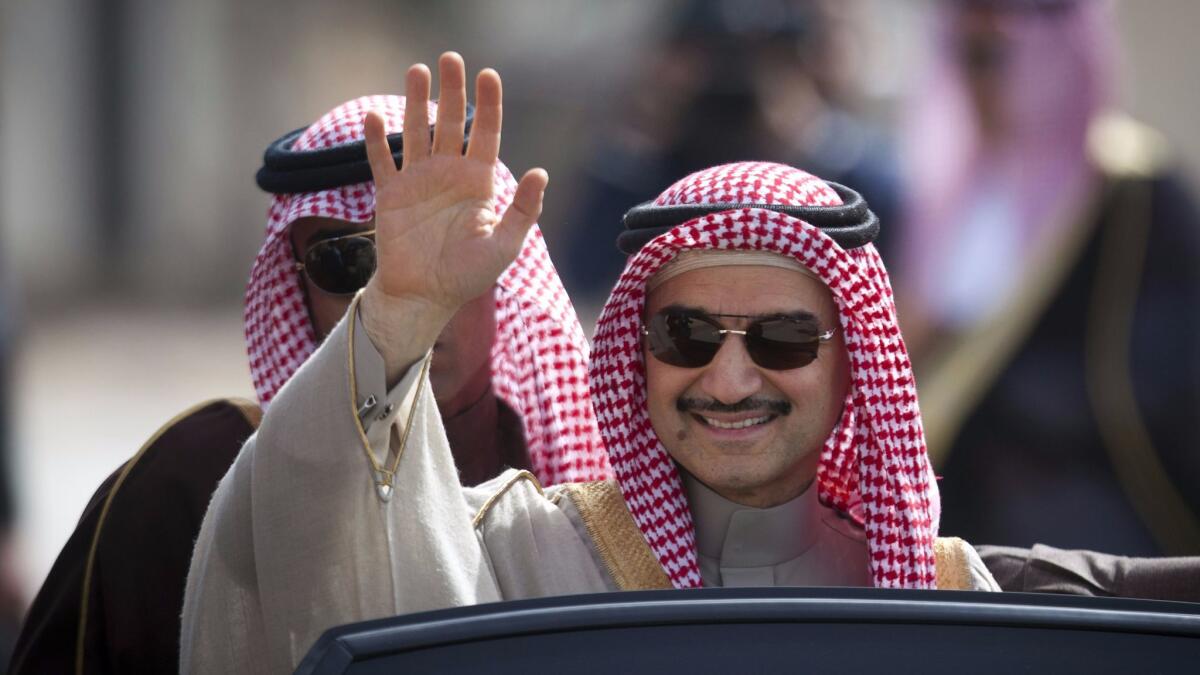
Prince Alwaleed bin Talal, chairman of Kingdom Holding Co.
One of the world’s wealthiest men, Prince Alwaleed has amassed major holdings in major Western brands such as Citigroup, Twitter and Apple. He has also invested in real estate, hospitality and entertainment sectors.
It was not immediately clear why the prince had been targeted. Alwaleed has been publicly supportive of the crown prince’s attempts to woo investment, as well as as a controversial military campaign in neighboring Yemen.
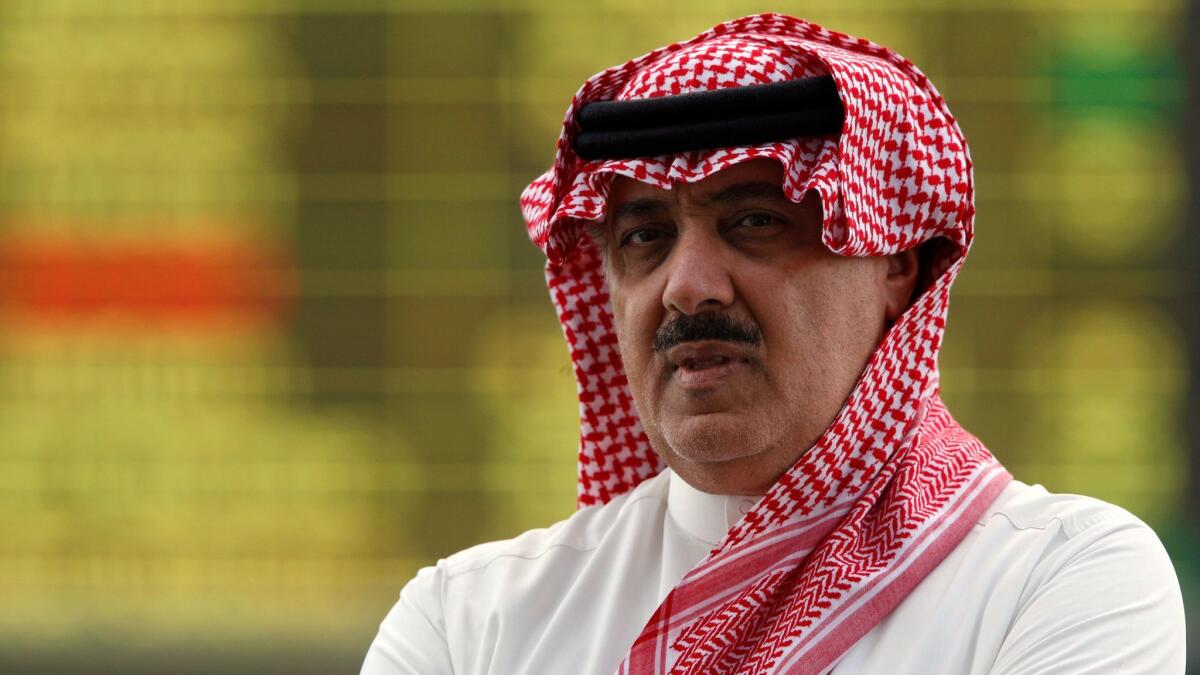
Prince Mutaib bin Abdullah
A favored son of the late
Mutaib is accused of embezzlement, hiring ghost employees and awarding contracts to his own companies, including a $10-billion deal for walkie-talkies and bulletproof military gear, according to a report by the Reuters news agency.
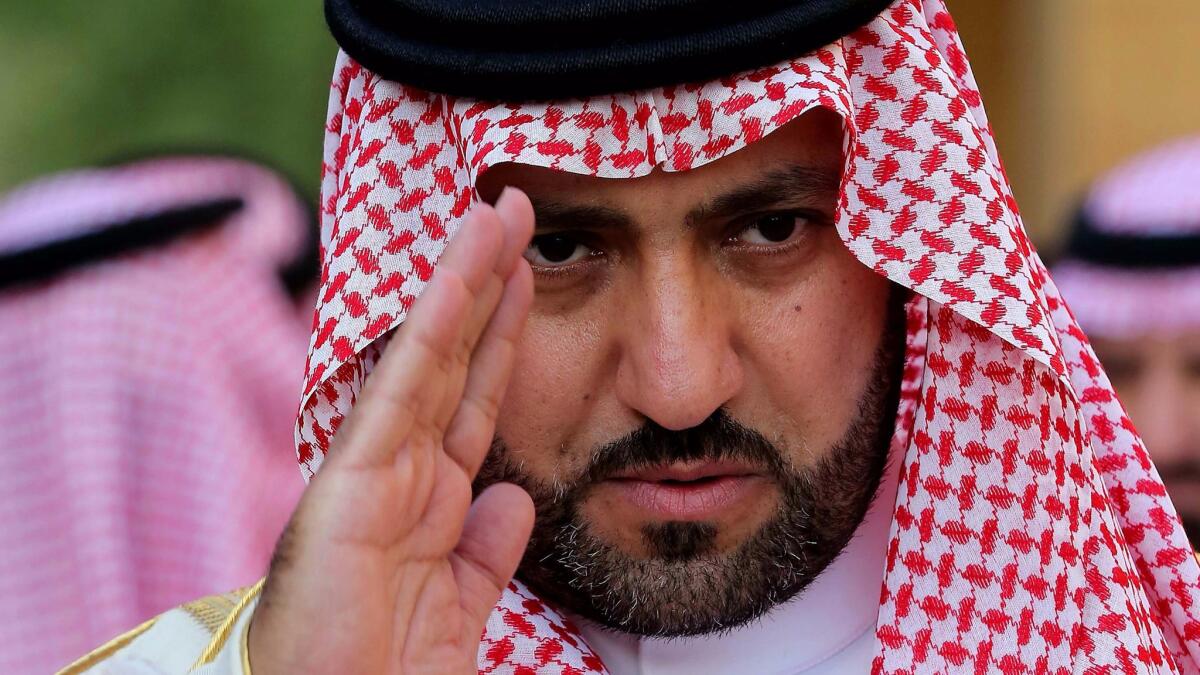
Prince Turki bin Abdullah, former governor of Riyadh
As deputy governor and governor of Riyadh province between 2013 and 2015, Prince Turki played a key role in the launch of a multibillion-dollar rapid transit project for the Saudi capital that is slated for completion in 2019. He is now reportedly accused of taking advantage of his influence to award contracts to his own companies.
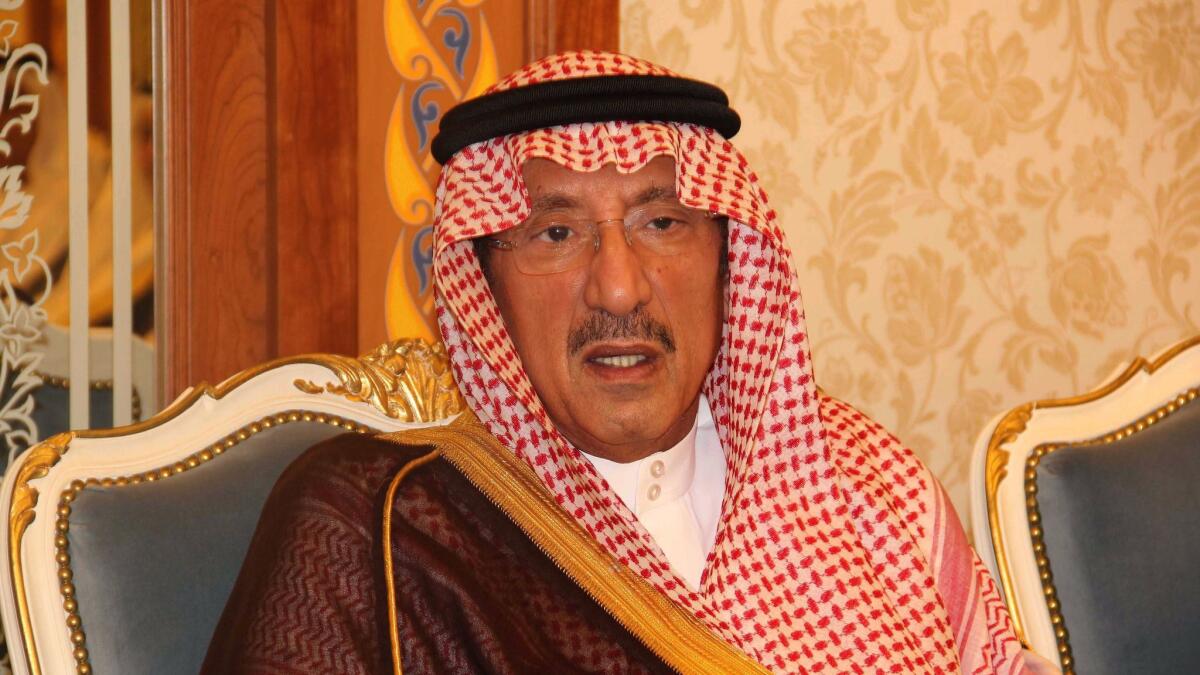
Prince Turki bin Nasser, former head of the Presidency of Meteorology and Environment
The presidency of Meteorology and Environment would appear to be a poor position for amassing a fortune. But Prince Turki reportedly owns nearly 200 classic cars, a business jet and opulent houses in Beverly Hills; Barcelona, Spain; and London.
As a high-ranking military official during the 1980s and 1990s, he was involved in arms deals with the military contractor BAE Systems that led to accusations of bribery and fines in Britain and the United States. Although he was never charged with wrongdoing, news reports at the time identified the prince as a major recipient of questionable payments made by the company to win contracts.
Prince Fahd bin Abdullah bin Mohammed, former deputy defense minister
Prince Fahd, who comes from a minor branch of the House of Saud, was appointed deputy defense minister in 2013 after a navy career. He was replaced just four months later; no reason was given for the switch.
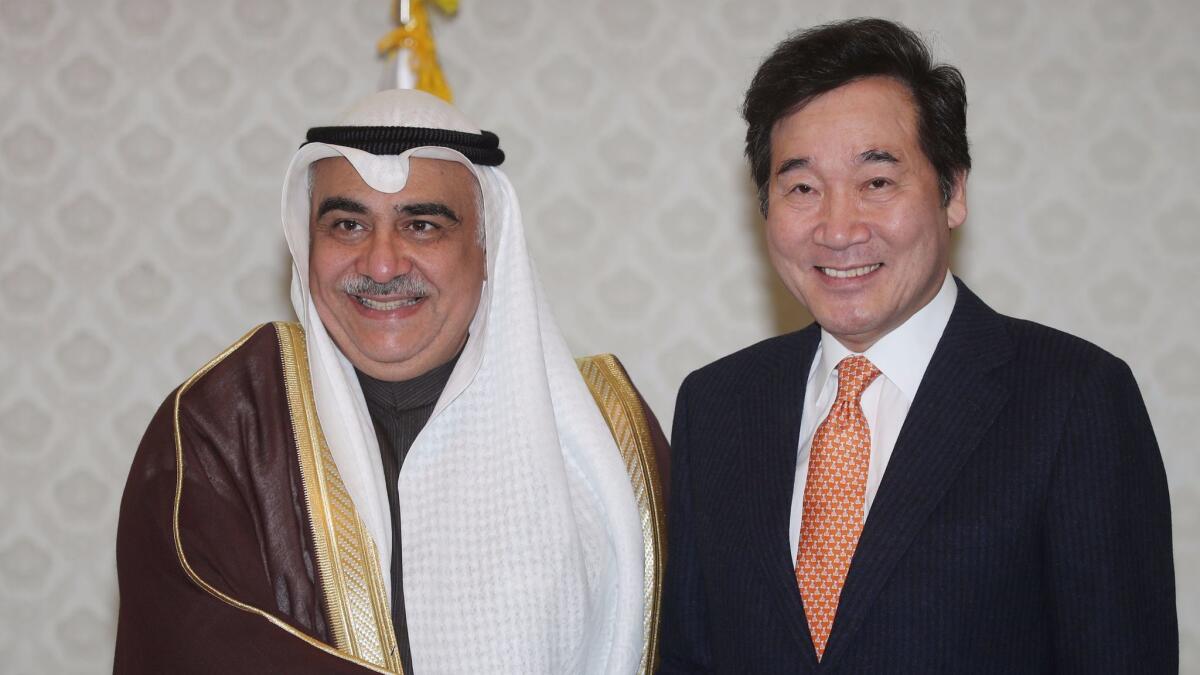
Adel Fakeih, minister of economy and planning
A veteran politician, Fakeih has served as the mayor of Jidda, minister of health and minister of labor.
King Salman appointed him minister of economy and planning in 2015. But an article in the Saudi daily Okaz the following year quoted observers describing him as “ineffective” and claiming that the ministry had not been actively involved in the crown prince’s “Saudi Vision 2030” reform agenda.
Khaled Tuwaijri, former chief of the Saudi royal court
As chief of the Saudi royal court, a post he held for nine years, Tuwaijri served as gatekeeper to King Abdullah.
A Cardinal Richelieu-like figure, he was seen by many as the de facto ruler in the country toward the end of the king’s life. But Abdullah’s successor, King Salman, removed him from office in 2015, apparently before Abdullah had been buried.
Some on social media, especially those who felt Tuwaijri had barred access to Abdullah, celebrated his reported arrest. But others called him a “loyal servant” and said his detention was proof that the crackdown was motivated by more than corruption.
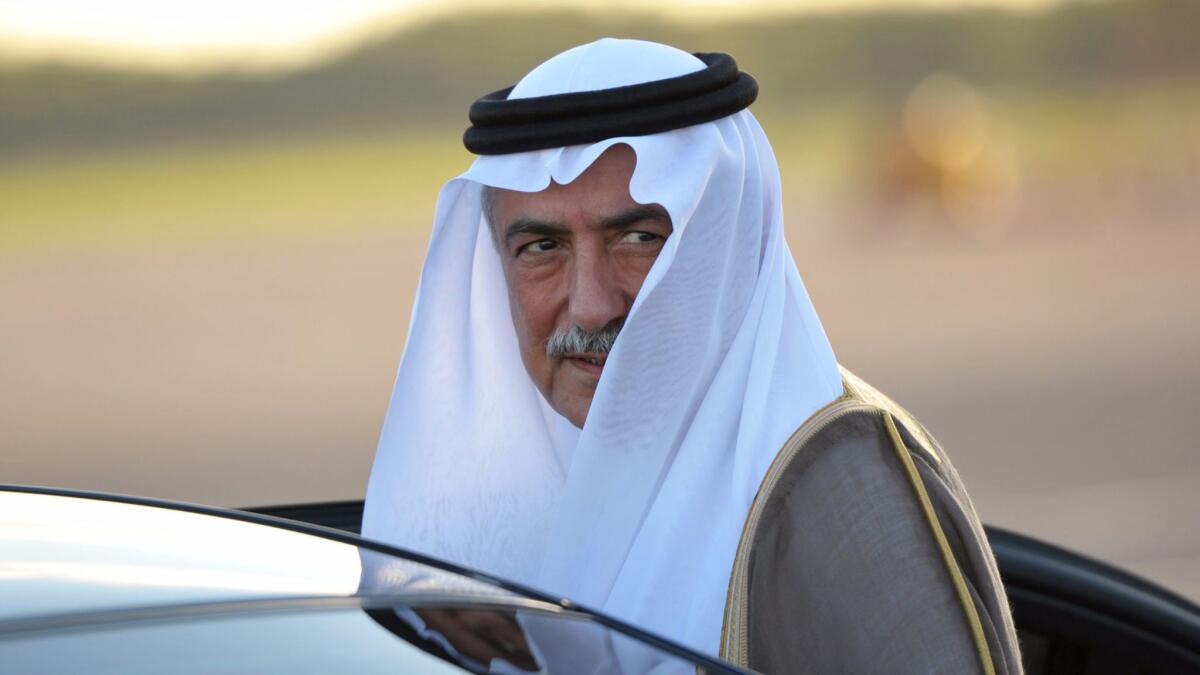
Ibrahim Assaf, former finance minister
Assaf served as the country’s finance minister for 20 years and continued to represent the kingdom at international events after he was replaced in 2016.
He has been involved in many of the kingdom’s top financial and business concerns, including the Saudi Fund for Development, and sits on the board of the state-run oil company, Aramco.
His arrest is likely to cause unease among investors in the run-up to the crown prince’s high-profile push to sell a stake in Aramco and has fueled speculation that the sale could be delayed.
Abdullah Sultan, commander of the Saudi navy
A career naval officer, Adm. Sultan was appointed to lead the force in 2014. A decree announced his “sacking,” according to the official Saudi Press Agency. His removal was seen as part of the effort to consolidate power in the hands of Salman loyalists.
Times staff writer Zavis reported from Irbil, Iraq, and special correspondent Bulos from Amman, Jordan.
Twitter: @alexzavis
Sign up for Essential California
The most important California stories and recommendations in your inbox every morning.
You may occasionally receive promotional content from the Los Angeles Times.








